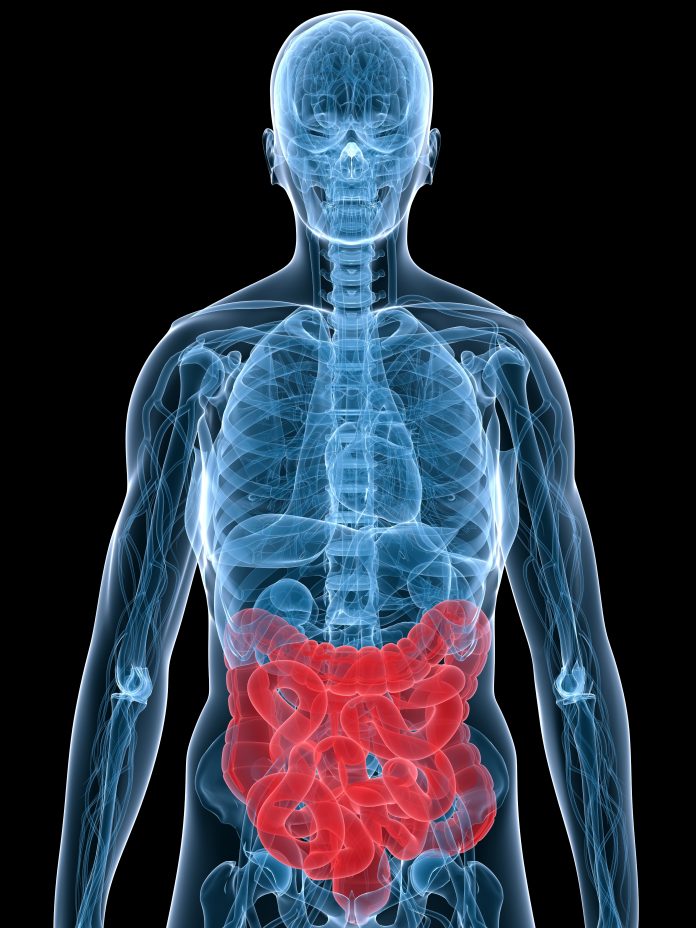Supporting immune function is top of mind for many people following the effects of the pandemic, but for those who seek to optimise the immune system, it can be hard to know where to start. However, as new research comes to light, it seems if you want to boost immunity, you should look to the gut.
Studies suggest that the gut plays an important role in metabolic function, protection against pathogens, and immune function.1 Due to this, nurturing the gut can produce positive effects on overall health and well-being. According to Accredited Practising Dietitian and nutritionist Annaleise Collier, “gut health plays a key role in supporting our immune system”.
“Our gut microbiome – the trillions of bacteria residing in our gut – and our immune system work together to create our body’s first line of defence against potential invaders, such as harmful bacteria and/or pathogens,” she said.
“Interestingly,” she added, “approximately 70 per cent of our immune cells live in our digestive tract and help shape the composition of bacteria in our gut.
“Our gut bacteria communicate with our immune cells, ‘training’ them to differentiate between what’s a dangerous invader, such as a virus, and what are healthy and/or friendly substances, such as our cells and tissues.
“This ‘training’ also helps to regulate our immune system’s responses so that it doesn’t overreact – that is, it doesn’t go into defence mode against substances such as new food or dust. If our immune system overreacts, in extreme cases this can result in autoimmune conditions and/or allergies.
“In summary, a healthier gut means a more robust immune system capable of warding off unwanted pathogens and/or invaders.”
Food for thought
The types of food we consume can have positive benefits on the gut microbiome and therefore support in optimising immune function. Ms Collier suggests that adding pulses, and fermented food to the diet can be beneficial, as well as experimenting with herbs and spices to add flavour.
“Aim to choose as many whole and natural foods as possible, limiting how often you have ultra-processed and pre-made or packaged foods,” she advised.
“Incorporate pulses – beans and legumes – into your meals. This will provide all-important fibre and prebiotics for your gut bacteria.”
“Add fermented foods such as natural yoghurt, kimchi, kefir, miso, tempeh and sauerkraut that contain probiotics – living bacteria – which can help to create a healthier balance of microbes living within your gut.
“Add flavour to your food by experimenting with herbs and spices. These contain beneficial compounds for your gut bacteria.”
Polyphenols and limiting sweeteners
Polyphenols are natural compounds found in plants, including in many foods. The gut’s microbiome breaks down these compounds.2 Ms Collier advises that to optimise gut health, “food and drinks with high levels of polyphenols” should be chosen.
“Polyphenols are antioxidants that act as fuel for microbes,” she said. “Food sources include nuts, seeds, berries, olive oil, dark chocolate, coffee and tea.”
She adds that limiting the intake of artificial sweeteners such as aspartame, sucralose and saccharin may also be beneficial.
“These sweeteners can disrupt the metabolism of microbes and reduce gut diversity,” she said. “In animal studies, this has led to obesity and diabetes.”
Probiotics
Research indicates that probiotics enhance innate immunity and assist to modulate pathogen-induced inflammation.3 However, it’s important to note that larger studies and more research are needed to determine which strains of probiotics work best, the correct dosage amounts, and who would benefit most from taking probiotics.
“Probiotics contain live organisms, usually specific strains of bacteria, that positively affect your health,” Ms Collier said.
“There’s currently a large amount of research investigating the role of probiotics in improving gut health. There’ve been positive outcomes from small-scale studies. However, further research is warranted to determine how probiotics improve gut health, as there’s a limited understanding of the specific type and dosage required to elicit benefits. Some gastrointestinal conditions that may be improved by increasing probiotics in your body include diarrhoea – specifically caused by antibiotics or C. difficile infection), constipation, IBS and IBD.”
Ms Collier says that if people want to introduce probiotics into their diet, gradually increasing their intake of probiotic-rich foods is a good place to start.
“You can do this through food sources or supplements,” she said. “I’d recommend starting with probiotic-rich food such as sauerkraut, kimchi, kefir, or Greek yoghurt, and paying attention to any side effects, both positive and negative.”
She advises that those considering a probiotic supplement should talk to their healthcare provider before starting to take such a supplement, “particularly people with an increased risk of infection, such as those with a weakened immune system, young infants, [and those who’ve had] recent surgery or [are] critically unwell”.
Tips for optimising gut health
Ms Collier suggests the following gut health tips:
- Eat a diverse range of plant-based food and aim to have many different colours and types of fruits, vegetables, whole grain bread and cereals and legumes/lentils – aim for 30g a day.
- Increase your dietary fibre intake. For the most part, Australians are consistently below the recommended level of 30g per day with their fibre intake. This can be increased by eating whole fruits, vegetables, nuts and seeds, wholegrain bread, and cereals and pulses. “Your gut bugs love to eat fibre!”
- Keep stress levels down by exercising regularly, practising mindfulness and getting enough sleep.
- Try adding fermented foods to your diet.
- Don’t believe all the hype and/or fads you see in the media. Take time to do proper research or, if you’re in doubt, see a trusted health professional such as your GP or dietitian.
References
- Andrew B Shreiner et al. ‘The gut microbiome in health and in disease’. 2015. nlm.nih.gov/pmc/articles/PMC4290017/pdf/nihms-649791.pdf.
- Cardona F. ‘Benefits of polyphenols on gut microbiota and implications in human health’. 2013. com/science/article/pii/S0955286313000946.
Yan F, Polk DB. ‘Probiotics and immune health’. 2014 ncbi.nlm.nih.gov/pmc/articles/PMC4006993/#:~:text=Probiotics%20have%20been%20found%20to,regulated%20signaling%20pathways%20%5B1%5D
This feature was originally published in the May issue of Retail Pharmacy magazine.







